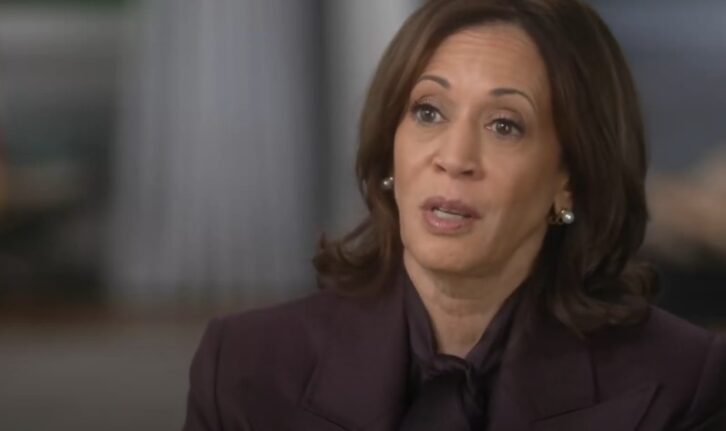Radio World
Author (when available): Elle Kehres
The National Association of Broadcasters has filed new comments with the FCC urging the federal agency to end its investigation of a contentious CBS interview with former Vice President Kamala Harris — stating there is no evidence of “news distortion.”
Earlier in February, the FCC invited the public to weigh in on the “60 Minutes” interview with then-Vice President Harris after the full, unedited footage was released. At that time, the commission posted links to the video and transcript, and established a docket to seek comment.
In its newly-filed comments, the NAB said the FCC must quickly dismiss the “invalid” complaint, saying, “despite the complaint’s focus on how the former vice president’s answer to a single question was edited, nothing here indicates, let alone demonstrates, deliberate falsification or a deliberate intent to mislead …”
The complaint on which the FCC is acting was filed in October by the Center for American Rights (CAR), a conservative legal firm. It was previously dismissed by the FCC Enforcement Bureau; however, it was reopened by FCC Chairman Brendan Carr once President Donald Trump was inaugurated.
Before she stepped down from her position, former FCC Chair Jessica Rosenworcel said the regulator “does not and will not revoke licenses for broadcast stations simply because a political candidate disagrees with or dislikes content or coverage.” This is a stance that since come under scrutiny by the new administration.
NAB said CAR, in its CBS complaint, effectively uses “news distortion” as a proxy for “balance,” urging the FCC to “assure” a “balanced presentation of information.”
“But ‘news distortion’ is about falsifying or distorting facts,” said NAB, stating the complaint is not justified.

The FCC’s policy against “news distortion” in over-the-air broadcast (local TV and radio stations) news has been in place for more than 50 years; however, there are several protections in place for broadcasters. FCC Rules state that news distortion “must involve a significant event and not merely a minor or incidental aspect of the news report.” In weighing the constitutionality of the policy, courts have recognized that the policy “makes a crucial distinction between deliberate distortion and mere inaccuracy or difference of opinion,” according to FCC guidelines.
In its comments, NAB said, “the news distortion policy at its essence concerns falsifying or distorting facts, not ‘balance’ or ‘fairness,’ as conceived in the long-repealed Fairness Doctrine,” of which the NAB makes several references in its comments, calling the outdated legislation unconstitutional.
The Fairness Doctrine, introduced in 1949, was a policy that required broadcast licensees to present controversial issues of public importance, and to do so in a manner that fairly reflected differing viewpoints. In 1985, under FCC Chairman Mark Fowler, the commission released a report stating that the doctrine hurt the public interest and violated free speech rights guaranteed by the First Amendment. The doctrine was eventually abolished in 1987.
“Even beyond similarities with the Fairness Doctrine, the news distortion policy is unconstitutionally vague,” said NAB in its comments.
According to the FCC’s website, the commission’s authority to take action on complaints about the accuracy or bias of news networks, stations, reporters or commentators in how they cover — or sometimes opt to not cover — events is “narrow.”
It states: “The agency is prohibited by law from engaging in censorship or infringing on First Amendment rights of the press. Those protected rights include, but are not limited to, a broadcaster’s selection and presentation of news or commentary …”
NAB said in its comments: “Given that the complaint does not even allege a prima facie case for news distortion, let alone provide evidence that the editing in question was designed to deliberately mislead viewers about a significant event, and done so at the direction of the licensee’s management, it must be dismissed.”
It continued: “Further, even assuming a successful claim could be made, Congress did not grant the FCC the authority to develop and enforce its news distortion policy, and that policy also almost certainly violates the First Amendment.”
Last year, Trump sued CBS over the broadcast, claiming that “60 Minutes” deceptively edited the interview to interfere with the presidential election. The president has since demanded “a lot” of money to settle the case, which many Frist Amendment experts and industry advocates call “frivolous.”
Radio World welcomes letters to the editor on this or any story. Email radioworld@futurenet.com.
[See Our Business and Law Page]
The post NAB: FCC’s “60 Minutes” Investigation Is Unconstitutional, Invalid appeared first on Radio World.
(Some articles are truncated by the original site.)
Please visit the Original Source



